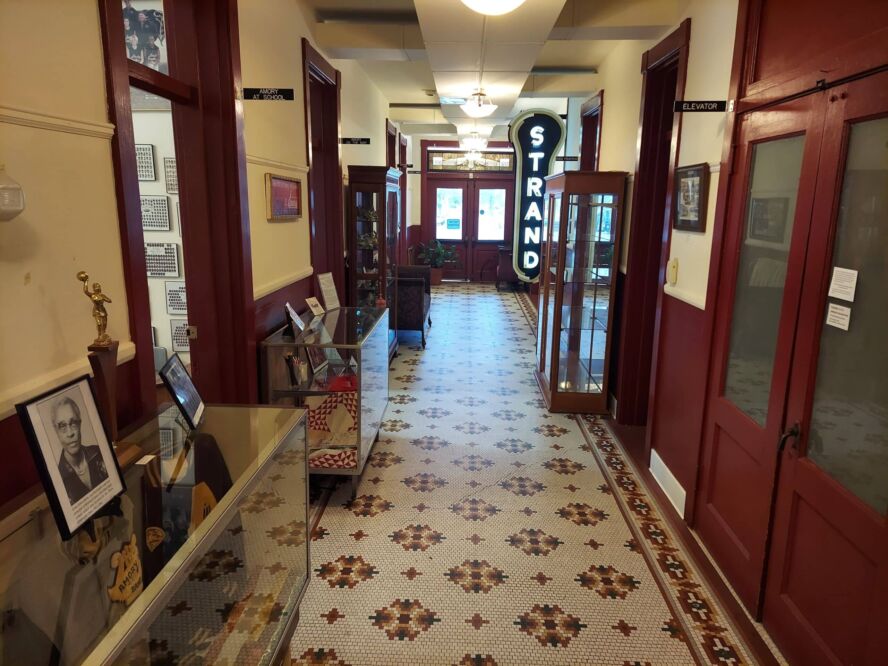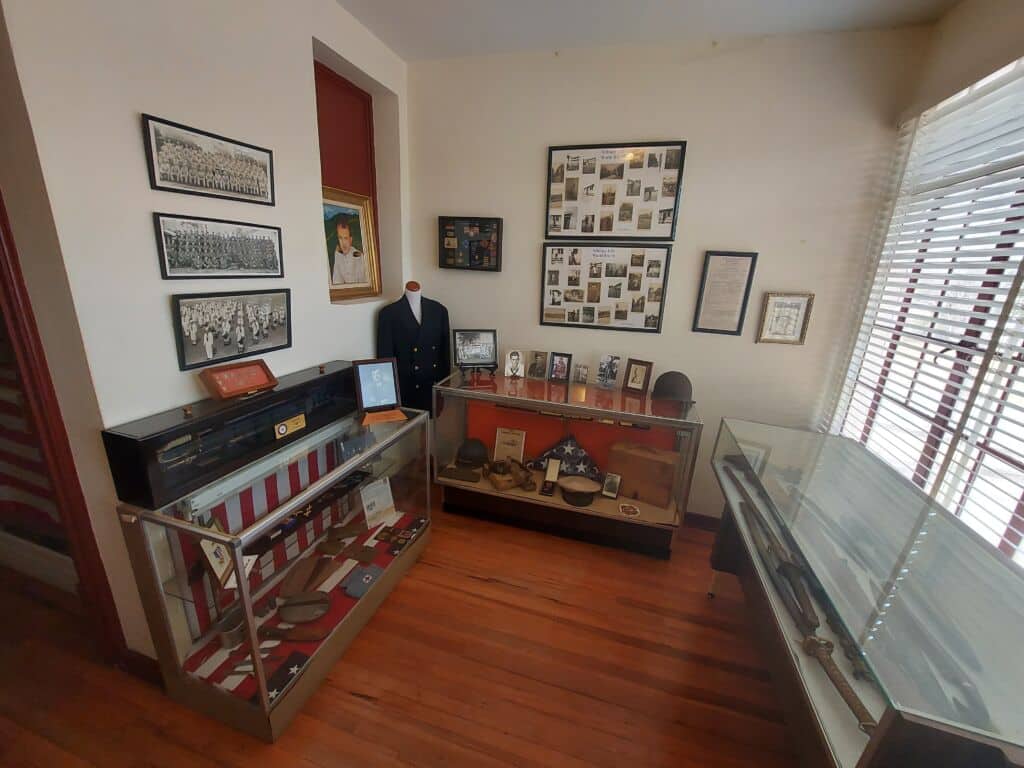
By Bryan Mathison, Senior Library Associate at Mississippi State University and Docent/Research Associate at the Amory Museum
The city of Amory, Mississippi, is a bustling community of over 6,000 people. Situated in a scenic corner of Northeast Mississippi, Amory boast a long and storied history. Originally built as a railroad town, Amory has blossomed into a diverse and thriving community. The institution tasked with preserving and sharing that history is the Amory Regional Museum (hereafter ARM). Opened in 1976, the AMR is housed within the historic Gilmore Sanitorium. Among other firsts, the ARM was the first city-owned museum in Mississippi. ARM is staffed by two full-time employees (director and archivist) and two museum docents.
ARM’s leadership recognizes that docents play a crucial role and have worked to treat them as museum professionals. I have found that there is a great deal of uncertainty surrounding what docents do and the tasks they perform. Some visitors have vague ideas, but even then, it remains hazy. The professional role played by docents is often greatly underappreciated. Merriam-Webster defines professional as “characterized by or conforming to the technical or ethical standards of a profession.” Viewing docents as museum professionals then requires that they have technical expertise and high ethical standards. Recruitment, training, and retention of professionals can be expensive and time consuming, even for the largest organizations. Given that most museums have limited budgets and resources, it is crucial to retain talented and dedicated employees for the long haul. ARM works to professionalize their docents by fostering open communication, transparency, and shared responsibilities with all employees.
ARM’s leadership encourages communication and transparency by working to build an inclusive and collegial managerial style. At the ARM docents are included in staff meetings so they can provide their unique insight into future exhibits, policies, and events. Often these perspectives are shaped by feedback provided by patrons. By providing tours, directions, and recommendations, museum docents serve in crucial public-facing positions. When docents cannot attend meetings, the director and archivist provide ample other opportunities for input. By seeking and valuing input from docents, ARM’s leadership both empowers docents to make contributions to the museum while also holding them accountable.
At ARM, docents are employees of the City of Amory and are held to high standards of conduct. Given the high standards to which they work, docents are also compensated. By compensating docents, ARM recruit and retain talented candidates. By holding talented employee to high standards of conduct and ethics, it is clear that they are indeed museum professionals. Not only do docents need to demonstrate high ethics, but they must also have technical expertise to be considered professionals.

ARM’s leadership fosters a sense of shared responsibilities which encourages cross-training. By cross-training staff, museum docents gain crucial technical expertise. Over the summer, a fellow museum docent worked with the museum director and archivist to design an exhibit centered around a local high school. In another instance, the archivist worked to train me on the use of Past Perfect museum software. Beyond software training, ARM’s leadership also supports professional development through conferences. Earlier this year, I was fortunate enough to be able to attend the Mississippi Museum Association Annual Conference with support from ARM’s leadership. I got the opportunity to network with many successful professionals from across the state and region. In so doing, I was able to bring back ideas and insights which were well received by ARM’s leadership. While technical expertise can come in different forms, museum docents benefit from it all the same. By promoting cross-training, ARM’s leadership ensured that docents received technical experience which furthered their professional status.
ARM has certainly benefited from professionalizing docents. Docents at the ARM are public employees who strive toward the highest ethical and professional standards. Supported by open communication with ARM leadership, docents serve as liaisons between the general public and museum leadership. In so doing museum docents, provide critical insight which is guided by strong ethical principles. By treating and valuing them as professionals, ARM benefits from a committed group of docents with real insight and dedication to the museum.



